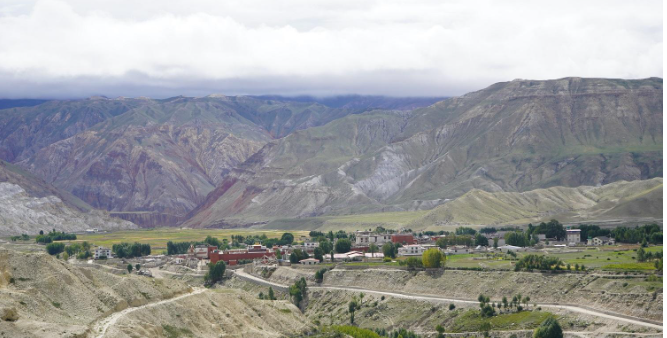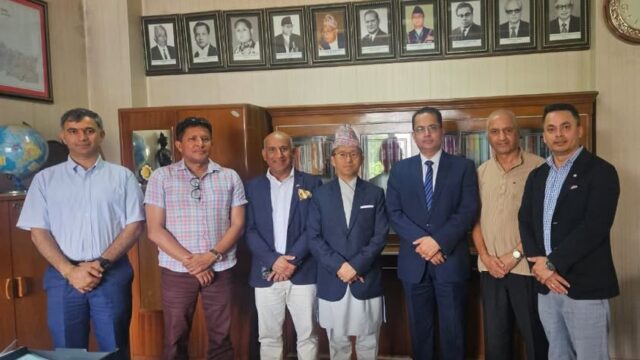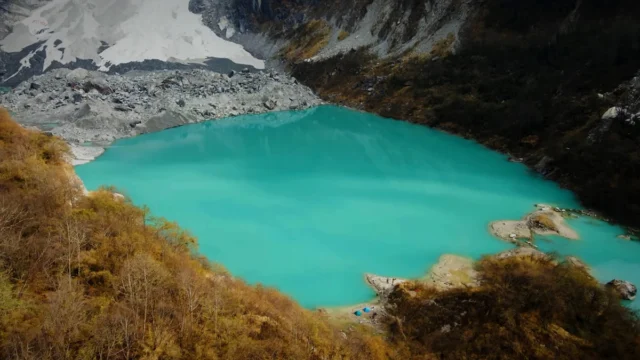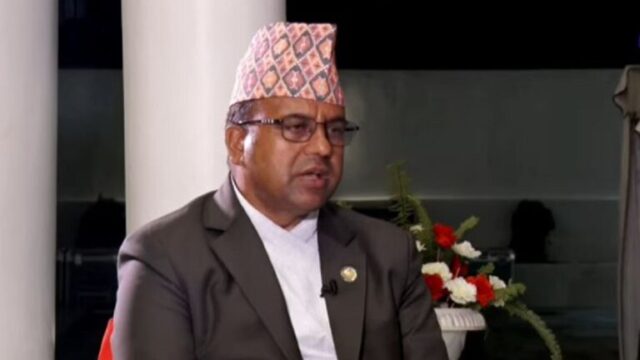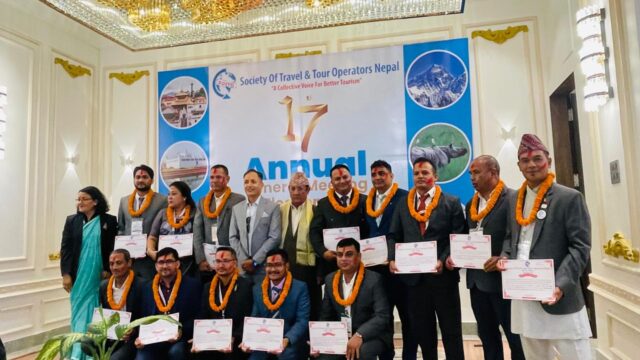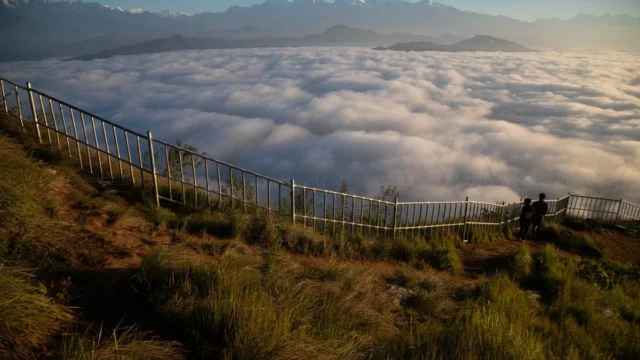Nima Bista, the owner of Nyutara Hotel in Lomanthang Rural Municipality-5, has left the hotel industry and migrated to the United States. After struggling to achieve the expected returns on his investment, Bista handed over his hotel to relatives before relocating abroad.
According to Chewang Gurung, the secretary of the Lomanthang Hotel Entrepreneurs Association, many other hotel operators in Upper Mustang are facing similar situations and considering leaving the country. Gurung highlighted that while Upper Mustang is a “virgin area” for tourism, the restrictions imposed and high fees have deterred tourists from visiting, leading to a decline in business.
Upper Mustang is renowned for its scenic barren landscapes, artistic hills, ancient Tibetan culture, and historical landmarks such as palaces, monasteries, and chortens. The region is also home to Damodarkunda, a significant pilgrimage site for both Buddhists and Hindus.
Several hotels, built with multimillion-dollar investments, now stand empty due to restrictions on foreign tourists entering Upper Mustang. The region’s tourism and hospitality sectors mainly rely on domestic visitors during holidays and festivals. Lomanthang has around 25 hotels with the capacity to host 400 tourists daily. However, as hotel operator Ram Bahadur Gurung noted, most of these hotels remain vacant due to low tourist numbers. Currently, 70 hotel operators in Upper Mustang are facing significant difficulties.
The average investment to establish a hotel in the area is around NPR 35 million (USD 260,000). Despite a combined capacity to host 1,500 tourists daily, the region only sees around 3,000 visitors annually. Although there is a higher number of Nepali tourists compared to foreigners, no official data has been recorded on their visits.
Lhakpa Wangdi Gurung, a businessperson, and member of Lomanthang Rural Municipality-5, pointed out that the semi-restricted status of the Upper Mustang and high fees are major obstacles to tourism development. He believes that relaxing these restrictions would benefit the state, local businesses, and communities. Due to the semi-restricted status, many young people are leaving the region to seek opportunities abroad.
Tourists visiting Upper Mustang are required to obtain a special permit from the Department of Immigration, costing USD 500 for a 10-day stay. For longer visits, an additional fee of USD 50 per day is charged. Moreover, tourists are prohibited from traveling beyond the village of Nechung, located in Lomanthang Rural Municipality-1. Since 1992, the government has designated Upper Mustang as a restricted area, allowing foreign tourists to enter only after paying the necessary fees.
In 2023, 3,484 foreign tourists from 70 countries visited Upper Mustang, with similar numbers expected in 2024. In contrast, the region saw just 332 tourists in 2021 and 62 in 2020, largely due to the pandemic. The highest recorded tourist arrivals were in 2017, with 4,115 foreign visitors. However, despite the potential, less than 10% of tourists entering Mustang venture into Upper Mustang, and those who do often rush their visits due to limited time.
The restricted area status has limited tourist arrivals, impacting local livelihoods and economic activities. Tashi Narbu Gurung, the chairperson of Lomanthang Rural Municipality, has called on both provincial and federal governments to remove the restrictions and reduce the high fees to encourage more tourists to visit the region. The issue of removing the restricted area status has become a major political topic in the region, with officials, including Prime Minister KP Sharma Oli and former Prime Minister Pushpa Kamal Dahal, being urged to take action.
Mustang locals, including representatives such as Yogesh Gauchan (Thakali), a member of the House of Representatives, are advocating for an increase in security presence along the China-Nepal border to justify removing the restricted status. In response, the Ministry of Home Affairs is considering partially opening areas like Chhusang and Sangta and reviewing the restricted area status of Lomanthang.
Additionally, suggestions have been made to reduce the entry fees and provide easier access for tourists from neighboring countries such as China, India, and SAARC nations. Locals have expressed concerns over the double standards of law within the restricted areas, as they face limitations despite being part of the same country.
The federal government is currently reviewing policies and legal frameworks to address these issues, with a decision expected soon.
